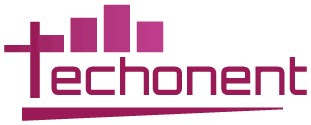
Blockchain technology has proved to be a revolutionary technology worldwide due to its ability to enhance efficiency, transparency, and security in business management. However, one of the domains where blockchain technology appears to be incredibly effective is mobile app development.
Through decentralization and excessively secure platforms, blockchain is now the key to creating secure and efficient mobile app development, including data leakage, identity theft, and transaction fraud. In this article, the author explores the possibilities of blockchain technology in secure mobile app ecosystems where it dissects its effects on decentralization, security and ingenuities.
Understanding Blockchain Technology
Blockchain is an advanced digital information management system that embodies decentralized and distributed records of transactions in a network. Every transaction is electronically protected and is called a ‘block,’ which is accumulated in sequence to make a ‘chain.’
The structure also means that as soon as a transaction record is inputted, it cannot be changed or removed, which gives more security. This distributed structure of blockchain removes intermediaries, thus increasing trust and decreasing the operation’s expense.
With a compound annual growth rate (CAGR) of 66.2%, MarketsandMarkets estimates the worldwide blockchain market will be over $7.4 billion in 2022 and will produce income of $94 billion by the end of 2027. Blockchain is a revolutionary technology, and based on its four principles of decentralization, transparency, immutability and security, blockchain now finds applications in cryptocurrency, supply chain, and mobile app development, particularly where user information security is an issue.
The Role of Blockchain in the Securely Developed Mobile Application
#1. Enhanced Data Security
This is one of the strongest benefits of blockchain when it comes to secure mobile app development. The technology can easily work to improve data security.
Conventionally developed mobile applications store users' data on servers, and this data can be hacked, breached, or have a single point of vulnerability. Blockchain solves all these vulnerabilities by ensuring data is distributed across many nodes within a particular blockchain network.
#2. Improved Authentication Mechanisms
Blockchain technology reformulates how the mobile application identity is authenticated by doing away with common ways like passwords, for instance, those that are hacked through phishing and brute force. Conversely, through blockchain, users can manage their credentials while organizations receive access without relying on a centralized verification authority. This approach helps minimize cases of identity theft and other forms of unauthorized access.
Also Read: 127.0.0.1:62893 and 127.0.0.1:49342
#3. Transparent Transactions
Transparency is one of the major concepts of blockchain, and it is crucial to developing good working mobile applications. Each based on the transaction that takes place on a blockchain network is specific and has a time stamp on it; once a transaction is recorded, nobody can change it.
This results in forming a clear record that is open to all the network members. In the case of mobile apps in financial applications, businesses, and supply chains, this has been crucial in providing transparent accountability to prevent fraud.
#4. Smart Contracts to Automate
Smart contracts can be defined as self-executing based on code written on the blockchain, which will execute a transaction if some conditions are fulfilled. Such contracts cut out the middleman and save time and money.
In secure app development, smart contracts are very helpful because they can perform certain actions like payment for a certain product or service, decisions on important disputes, or checking and verifying one’s compliance with certain standards.
#5. Cost Efficiency
Blockchain structure substantially minimizes dependence on third-party service providers, including payment processors, identity checks, and record storage. The net effect is that this leads to significant savings in the overall cost for both developers and users.
For instance, blockchain apps for peer-to-peer payments in financial platforms such as Uber and other wireless cars avoid charging high fees from middlemen such as banks. Likewise, decentralized underwriting mechanisms improve sign-up procedures, processing more applications more efficiently.
Using the Blockchain Technology in the Development of Mobile Applications
#1. Finance and Payments
Cryptocurrencies, digital currency wallets, and decentralized finance (DeFi), make for secure, swift, and inexpensive transactions. It will not be long before applications such as Coinbase or Binance popularized blockchain in developing safe mobile applications for handling funds.
#2. Healthcare Apps
Patients’ information held by healthcare applications thus require high-security standards in mobile applications. Blockchain makes sure that medical records do not become a centralized database with private information that is accessible only to the necessary users and is resistant to tampering.
Also Read: SWGoH WebStore
#3. Gaming and Entertainment
These defined blockchain features help blockchain gaming apps to create tokenized economies and decentralized ownership for users. Digital transactions and ownership through NFTs enable gaming apps to allow players to own and trade assets safely, thus revolutionizing gaming.
#4. Supply Chain Management
Blockchain implementation provides transparency and accountability in data records, which is helpful in supply chain management for mobile applications. Blockchain holds great potential for companies to enable checks of products verify shipment details, and even curb fraud.
#5. Identity Verification
The right platform selection allows for decentralized and secure identity verification without invading one’s privacy with the possibility of fraud. Blockchain identity solutions can be implemented into mobile apps to improve onboarding processes and software security.
Future Trends in Blockchain and Its Relationship with Mobile Apps
Blockchain applications in mobile app development are expected to advance due to enhanced technology development and data security awareness. Emerging trends include:
- Integration with IoT: The identified area of the Internet of Things and its mobile application can also benefit from blockchain technology in improving the system's security.
- Cross-Chain Interoperability: Apps will support multiple blockchain networks, offering users greater flexibility.
- Decentralized Autonomous Organizations (DAOs): DAO structures will be integrated into mobile applications, allowing for decentralized governance.
End Note
Mobile app development is being transformed by blockchain technology as it resolves crucial concerns in mobile app security and decentralization. They include the ability to reverse the process, openness, and better forms of identification necessary when developing secure mobile app for the expanding mobile markets cutting across various sectors.
It is also imperative to best practices in use, as developers keep on learning about this technology with hopes of improving its use continuously. Because the field aims to implement secure, efficient and user-friendly solutions, Blockchain technology has all the potential to become one of the primary constituents of future mobile app development.
Therefore, by using an appropriate blockchain platform 2.5.4 and increasing focus on security measures, it is possible to open up new possibilities for the subsequent generation of developed applications for portable devices.

